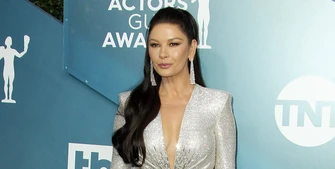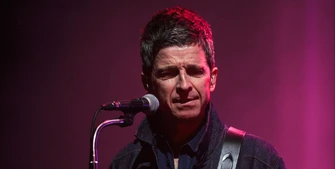America Ferrera reflects on poverty-stricken childhood: 'I couldn't have lunch at school'
America Ferrera reveals she couldn't afford to have lunch when she was at school and reflects on when her sense of identity came into play amid her time growing up in California as the daughter of immigrants.

America Ferrera couldn't afford to have lunch when she was at school.
The 39-year-old actress grew up as one of six children with a single mother and recalled that while she "didn't know the facts" about her family's poverty at the time, she feels as if she was "shaped" by having to get through the school day hungry.
Speaking on BBC Radio 4 show 'Woman's Hour', she said: "One of the most vulnerable memories of childhood is that my mother was a single mother, for the majority of my childhood, and I was the youngest of six kids. It was touch-and-go and we struggled. I remember in fifth grade,
"I didn't even really know the facts, and I was too ashamed to ask but I basically spent all of fifth grade going to school with no lunch and getting through the school day hungry.
"That is an experience that shapes you as a child when you're so personally acquainted with what it means to be in a different circumstance to people around you."
The 'Barbie' star is the daughter of Honduran immigrants and went on to add that she ended up "confused" growing up in a time where the American dream had promised her "equality and freedom" and yet having to go through an experience that didn't match up with what she had been promised.
"To feel that you don't feel necessarily like a different species but it's what is happening nonetheless. Being taught that there is equality and freedom, I deeply believed in the American dream and in the promise of America because that is what I had been taught to believe, not only by my immigrant parents but from my education.
"But it wasn't long before it started to feel confusing. I was in, I believe, in third grade when there was a proposition on the Californian ballot that would basically take away public services from undocumented families including children in public elementary schools. I remember my mom pulling me to one side before school and say 'If somebody comes and asks you where you're from, you did nothing wrong, you don't need to be afraid. you were born in this country.' I was so young and I didn't understand!"
"I was quite young when I realised I had a sense of my identity and I hold onto the feeling that there is justice and equality but I was having an experience that didn't reconcile and so I became aware of things because I had to."
















